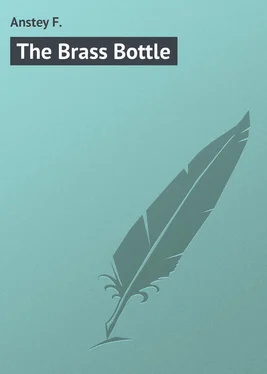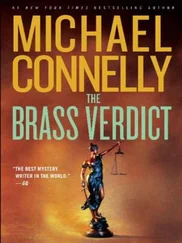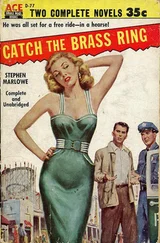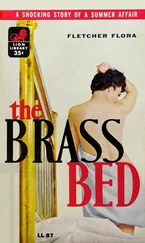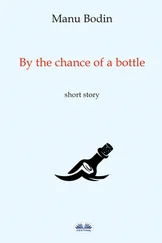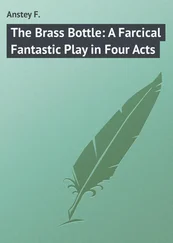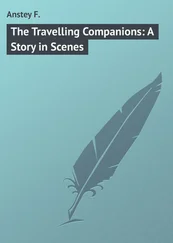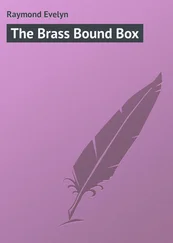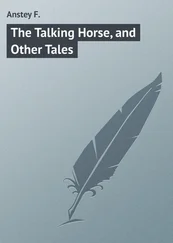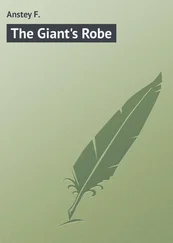F. Anstey - The Brass Bottle
Здесь есть возможность читать онлайн «F. Anstey - The Brass Bottle» — ознакомительный отрывок электронной книги совершенно бесплатно, а после прочтения отрывка купить полную версию. В некоторых случаях можно слушать аудио, скачать через торрент в формате fb2 и присутствует краткое содержание. Жанр: foreign_prose, на английском языке. Описание произведения, (предисловие) а так же отзывы посетителей доступны на портале библиотеки ЛибКат.
- Название:The Brass Bottle
- Автор:
- Жанр:
- Год:неизвестен
- ISBN:нет данных
- Рейтинг книги:3 / 5. Голосов: 1
-
Избранное:Добавить в избранное
- Отзывы:
-
Ваша оценка:
- 60
- 1
- 2
- 3
- 4
- 5
The Brass Bottle: краткое содержание, описание и аннотация
Предлагаем к чтению аннотацию, описание, краткое содержание или предисловие (зависит от того, что написал сам автор книги «The Brass Bottle»). Если вы не нашли необходимую информацию о книге — напишите в комментариях, мы постараемся отыскать её.
The Brass Bottle — читать онлайн ознакомительный отрывок
Ниже представлен текст книги, разбитый по страницам. Система сохранения места последней прочитанной страницы, позволяет с удобством читать онлайн бесплатно книгу «The Brass Bottle», без необходимости каждый раз заново искать на чём Вы остановились. Поставьте закладку, и сможете в любой момент перейти на страницу, на которой закончили чтение.
Интервал:
Закладка:
"I have been, and returned. For I visited sundry cities in his dominions, hoping that by chance I might hear news of him, but I refrained from asking directly lest thereby I should engender suspicion, and so Suleyman should learn of my escape before I could obtain an audience of him and implore justice."
"Oh, I shouldn't think that was likely," said Horace. "If I were you, I should go straight back and go on travelling till I did find Suleyman."
"Well was it said: 'Pass not any door without knocking, lest haply that which thou seekest should be behind it.'"
"Exactly," said Horace. "Do each city thoroughly, house by house, and don't neglect the smallest clue. 'If at first you don't succeed, try, try, try, again!' as one of our own poets teaches."
"'Try, try, try again,'" echoed the Jinnee, with an admiration that was almost fatuous. "Divinely gifted truly was he who composed such a verse!"
"He has a great reputation as a sage," said Horace, "and the maxim is considered one of his happiest efforts. Don't you think that, as the East is rather thickly populated, the less time you lose in following the poet's recommendation the better?"
"It may be as thou sayest. But know this, O my son, that wheresoever I may wander, I shall never cease to study how I may most fitly reward thee for thy kindness towards me. For nobly it was said: 'If I be possessed of wealth and be not liberal, may my head never be extended!'"
"My good sir," said Horace, "do please understand that if you were to offer me any reward for – for a very ordinary act of courtesy, I should be obliged to decline it."
"But didst thou not say that thou wast sorely in need of a client?"
"That was so at the time," said Horace; "but since I last had the pleasure of seeing you, I have met with one who is all I could possibly wish for."
"I am indeed rejoiced to hear it," returned the Jinnee, "for thou showest me that I have succeeded in performing the first service which thou hast demanded of me."
Horace staggered under this severe blow to his pride; for the moment he could only gasp: "You — you sent him to me?"
"I, and no other," said the Jinnee, beaming with satisfaction; "for while, unseen of men, I was circling in air, resolved to attend to thy affair before beginning my search for Suleyman (on whom be peace!), it chanced that I overheard a human being of prosperous appearance say aloud upon a bridge that he desired to erect for himself a palace if he could but find an architect. So, perceiving thee afar off seated at an open casement, I immediately transported him to the place and delivered him into thy hands."
"But he knew my name – he had my card in his pocket," said Horace.
"I furnished him with the paper containing thy names and abode, lest he should be ignorant of them."
"Well, look here, Mr. Fakrash," said the unfortunate Horace, "I know you meant well – but never do a thing like that again! If my brother-architects came to know of it I should be accused of most unprofessional behaviour. I'd no idea you would take that way of introducing a client to me, or I should have stopped it at once!"
"It was an error," said Fakrash. "No matter. I will undo this affair, and devise some other and better means of serving thee."
"No, no," he said, "for Heaven's sake, leave things alone – you'll only make them worse. Forgive me, my dear Mr. Fakrash, I'm afraid I must seem most ungrateful; but – but I was so taken by surprise. And really, I am extremely obliged to you. For, though the means you took were – were a little irregular, you have done me a very great service."
"It is naught," said the Jinnee, "compared to those I hope to render so great a benefactor."
"But, indeed, you mustn't think of trying to do any more for me," urged Horace, who felt the absolute necessity of expelling any scheme of further benevolence from the Jinnee's head once and for all. "You have done enough. Why, thanks to you, I am engaged to build a palace that will keep me hard at work and happy for ever so long."
"Are human beings, then, so enamoured of hard labour?" asked Fakrash, in wonder. "It is not thus with the Jinn."
"I love my work for its own sake," said Horace, "and then, when I have finished it, I shall have earned a very fair amount of money – which is particularly important to me just now."
"And why, my son, art thou so desirous of obtaining riches?"
"Because," said Horace, "unless a man is tolerably well off in these days he cannot hope to marry."
Fakrash smiled with indulgent compassion. "How excellent is the saying of one of old: 'He that adventureth upon matrimony is like unto one who thrusteth his hand into a sack containing many thousands of serpents and one eel. Yet, if Fate so decree, he may draw forth the eel.' And thou art comely, and of an age when it is natural to desire the love of a maiden. Therefore be of good heart and a cheerful eye, and it may be that, when I am more at leisure, I shall find thee a helpmate who shall rejoice thy soul."
"Please don't trouble to find me anything of the sort!" said Horace, hastily, with a mental vision of some helpless and scandalised stranger being shot into his dwelling like coals. "I assure you I would much rather win a wife for myself in the ordinary way – as, thanks to your kindness, I have every hope of doing before long."
"Is there already some damsel for whom thy heart pineth? If so, fear not to tell me her names and dwelling place, and I will assuredly obtain her for thee."
But Ventimore had seen enough of the Jinnee's Oriental methods to doubt his tact and discretion where Sylvia was concerned. "No, no; of course not. I spoke generally," he said. "It's exceedingly kind of you – but I do wish I could make you understand that I am overpaid as it is. You have put me in the way to make a name and fortune for myself. If I fail, it will be my own fault. And, at all events, I want nothing more from you. If you mean to find Suleyman (on whom be peace!) you must go and live in the East altogether – for he certainly isn't over here; you must give up your whole time to it, keep as quiet as possible, and don't be discouraged by any reports you may hear. Above all, never trouble your head about me or my affairs again!"
"O thou of wisdom and eloquence," said Fakrash, "this is most excellent advice. I will go, then; but may I drink the cup of perdition if I become unmindful of thy benevolence!"
And, raising his joined hands above his head as he spoke, he sank, feet foremost, through the carpet and was gone.
"Thank Heaven," thought Ventimore, "he's taken the hint at last. I don't think I'm likely to see any more of him. I feel an ungrateful brute for saying so, but I can't help it. I can not stand being under any obligation to a Jinnee who's been shut up in a beastly brass bottle ever since the days of Solomon, who probably had very good reasons for putting him there."
Horace next asked himself whether he was bound in honour to disclose the facts to Mr. Wackerbath, and give him the opportunity of withdrawing from the agreement if he thought fit.
On the whole, he saw no necessity for telling him anything; the only possible result would be to make his client suspect his sanity; and who would care to employ an insane architect? Then, if he retired from the undertaking without any explanations, what could he say to Sylvia? What would Sylvia's father say to him ? There would certainly be an end to his engagement.
After all, he had not been to blame; the Wackerbaths were quite satisfied. He felt perfectly sure that he could justify their selection of him; he would wrong nobody by accepting the commission, while he would only offend them, injure himself irretrievably, and lose all hope of gaining Sylvia if he made any attempt to undeceive them.
Читать дальшеИнтервал:
Закладка:
Похожие книги на «The Brass Bottle»
Представляем Вашему вниманию похожие книги на «The Brass Bottle» списком для выбора. Мы отобрали схожую по названию и смыслу литературу в надежде предоставить читателям больше вариантов отыскать новые, интересные, ещё непрочитанные произведения.
Обсуждение, отзывы о книге «The Brass Bottle» и просто собственные мнения читателей. Оставьте ваши комментарии, напишите, что Вы думаете о произведении, его смысле или главных героях. Укажите что конкретно понравилось, а что нет, и почему Вы так считаете.
